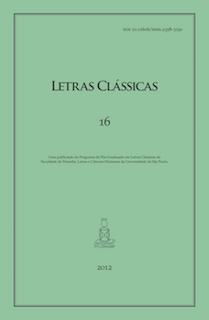Does the good man do injustice voluntarily? In defense of Plato’s Lesser Hippias
DOI:
https://doi.org/10.11606/issn.2358-3150.v0i16p35-60Keywords:
Plato, Socrates, knowledge of good and bad, justice, will, powerAbstract
A basic question still confronting readers of Plato’s Lesser Hippias is how to deal with the final conclusion of the dialogue, namely that the good man does injustice voluntarily, which seems profoundly irreconcilable with the principle attributed to Socrates that “no one errs willingly”. Nevertheless, if one delves deeper into the text, one will uncover further clues indicating that Socrates’ point is neither paradoxical nor contradictory to the philosophical positions he sets forth in Plato’s other works. On the contrary, the dialogue comes to a definite conclusion. The just man refrains from doing injustice precisely because he does not wish (βούλεσθαι) to do it. The knowledge of what is good and bad, namely of what benefits and harms the soul, activates exclusively the will for the good and, subsequently, the power to produce it.Downloads
Download data is not yet available.
Downloads
Published
2012-11-25
Issue
Section
Artigos
License
Autores que publicam nesta revista concordam com os seguintes termos:
- Autores mantém os direitos autorais e concedem à revista o direito de primeira publicação, com o trabalho licenciado simultaneamente sob uma Licença Creative Commons Attribution 2 anos após a publicação, permitindo o compartilhamento do trabalho com reconhecimento da autoria do trabalho e publicação inicial nesta revista.
- Autores têm autorização para assumir contratos adicionais separadamente, para distribuição não-exclusiva da versão do trabalho publicada nesta revista (ex.: publicar em repositório institucional ou como capítulo de livro), com reconhecimento de autoria e publicação inicial nesta revista.
- Autores têm permissão e são estimulados a publicar e distribuir seu trabalho online (ex.: em repositórios institucionais ou na sua página pessoal) a qualquer ponto antes ou durante o processo editorial, já que isso pode gerar alterações produtivas, bem como aumentar o impacto e a citação do trabalho publicado (Veja O Efeito do Acesso Livre).
How to Cite
Stefou, K. (2012). Does the good man do injustice voluntarily? In defense of Plato’s Lesser Hippias. Letras Clássicas, 16, 35-60. https://doi.org/10.11606/issn.2358-3150.v0i16p35-60


